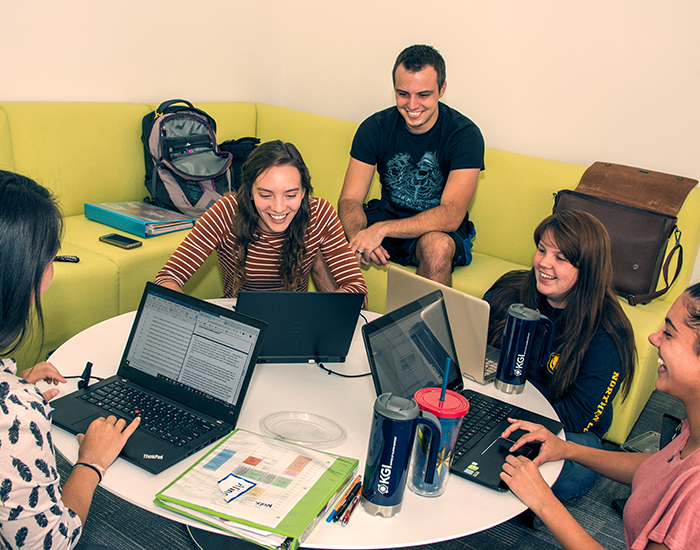If someone you knew was contemplating suicide or struggling with an addiction, what would you say to that person?
Keck Graduate Institute (KGI) Professor of Clinical Sciences Dr. Talia Puzantian, along with Dean of Students Dr. Cynthia Martinez, has brought Kognito gatekeeper training to the KGI campus to give students and faculty the tools they need to have these difficult conversations. Kognito is an online program that uses virtual simulations to help people have more empathic conversations, guiding at-risk individuals toward the appropriate resources and mental health professionals.
"We recognize that our students are increasingly struggling with their mental wellness, with rates of depression, anxiety, and substance abuse at a very high level compared to the past," said Puzantian.
Students who are experiencing these issues often don't seek out help for a variety of reasons. At the same time, peers and teachers might not know how to recognize the warning signs or how to effectively initiate a conversation that helps these students get the support they need.
"The gatekeeper training is part of an effort to educate the entire campus community to recognize what's going on and to be able to reach out," said Puzantian.
Faculty must learn to trust their intuition. If a student is frequently missing class or has a noticeable change in appearance—for instance, excessive weight loss—the professor should approach the student in a sensitive manner that expresses concern for his or her well-being.
According to Martinez, in addition to faculty and staff, students' friends and classmates can also notice warning signs. Her team has been instrumental in providing the gatekeeper training for students.
"At KGI, we have a strong focus on group work and collaboration," said Martinez. "So students are seeing each other one-on-one on a daily basis. That's why it's really important that students were trained on this."
Because the Kognito training is online, students and staff could complete it at their convenience, leading to a high completion rate—86% for new students.
Kognito guides the user through simulations of real-life scenarios—for instance, engaging with a friend that you notice has become withdrawn. You are given a series of potential responses to your friend and then presented with immediate feedback based on your response.
While there is not necessarily a "right" or "wrong" answer, some responses are more likely to elicit defensiveness while others will come across as helpful and supportive.
"Once you recognize that something is going on, one of the communication tips on how to address your concern is to be very neutral and non-judgmental," said Puzantian. "You're not placing blame on the person; you're just focusing very specifically on observable behaviors and expressing concern."
Kognito training is one of several campus-wide initiatives spearheaded as part of KGI’s participation in the JED Foundation’s JED Campus Program, which aims to protect college students’ emotional health. The Claremont Colleges Care Guide, a laminated guide that provides advice on how to help a student in distress, has been posted on bulletin boards all across campus.
Other initiatives include Wellness Wednesdays and KGI Cares, an informal support group for students who need a space to discuss anything that's on their mind. During high-stress periods such as pre-finals week, Student Affairs organizes fun, relaxing activities including breathwork classes, art therapy, and goat yoga.
"We don't believe in a one-size-fits-all approach to addressing mental health," said Martinez. "That's why we're creating multiple options for students, because students are going to connect in different ways. Even if you just touch one student for one particular program, at least you made a difference in that individual's life."
